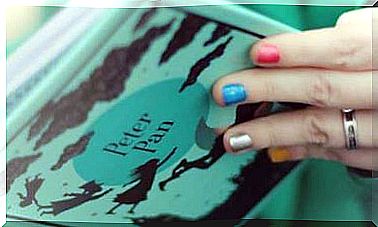Freedom, Security Or A Third Way
Freedom or security? It seems that choosing one is detrimental to the other. You may not have everything, but we are free to set our priorities.

Henry Mintzberg said that life can be summed up in one step: while one foot remains firmly and securely on the ground, the other foot explores freely and in the air. The analogy suggests how to reconcile two seemingly opposite terms – freedom and security – into a continuous whole.
The concept of safety, by itself, raises a similar incongruity, because if safety is defined in everyday life as the absence of risk, it also expresses a state of mind and trust that we associate with adventure.
All of us, at some point, have felt the inner pull between the curiosity of exploring new worlds and the fear of the risks involved in entering unknown terrain.
But where is it written that we have to choose between a free life or a secure life? The importance of reconciling them and the logic of the contradiction, to which we will refer later, allows us to add and negotiate without having to disdain profits or make unwanted resignations.
“At the bottom of the sea are incalculable riches, but if you are looking for safety, stay on the coast. ” With these verses the Persian poet Saadi de Shiraz alluded to the internal treasures that each person must bring to the surface in order to become a unique and complete being.
Paradoxically, the feeling of trust is the engine that allows you to travel to the bottom of that sea and integrate those riches.
The sources of security
The first deep bond that we experience is with the two beings that give us life. We feel linked to our own family and the one we create. Beyond this network we also need to belong connected at a broader level: groups, associations, ethnic groups, religions …
Human beings, at birth, are absolutely vulnerable and dependent for years. Hence the needs for protection, emotional nutrition or socialization that the family provides, regardless of the sense of belonging.
The bond theory, put forward by the British psychologist John Bowlby, affirms that the emotional bond that the child develops with their caregivers – who respond to their physical and emotional needs – is what allows them to subsequently develop their skills, grow and mature.
Through the fact of being unconditionally accepted and protected, the child will be able to explore the world around him, enjoying the basic emotional security for a good development of his personality.
What limits freedom?
The human being harbors the hope of a meaningful life rich in experiences, and from there the desire for freedom is born. The psychologist and sociologist Erich Fromm highlights the importance of freedom to act, that is, to be able to decide what to do based on a legitimate desire.
From childhood we learn to submit our own self for the benefit of the family or the group to feel safe belonging to them. But when a person stifles that longing to be himself, he also distances himself from his curious essence. Crises often appear when one part of us wants to change to the detriment of the other.
The trade-off between feeling safe and being free to act differently can be very stressful. We say “I would like X” or “should Y”, instead of saying “I want X” or “I want Y”.
Probably what would lead us to the dreaded scenario would be to ask: “What do I need to be able to do it?” Maybe we would like another job but something inside us is afraid of losing everything; Or maybe we are unhappy in the relationship but we prefer it to loneliness.
Thus, for example, it could be that the wish “I would like to change jobs” contains the condition “without any risk”. Or leave a relationship include the clause “without mistake” or “without pain.”
It may not be easy to make a move without the legitimate fear of loss arising; Even so, it is preferable to cope with the disagreement and fear than to chain renouncements and denials simply to adapt or be accepted.
Collaborating to Move Forward: A Mental Negotiation Exercise
We have been brought up to believe that things are black or white, ruling out third choices. But there are other possibilities. So it is in our unconscious intelligence: we can be brave and fearful at the same time, or feel happy to be sad.
The logic of contradiction, unlike the Aristotelian, recognizes this coexistence in the human. Approaches like Positive Psychology and NLP (Neuro-Linguistic Programming) teach that the mind responds to negotiation. For example, if someone who is on a diet allows himself a small pleasant transgression a day, he may be able to maintain himself longer than if he is too demanding, exposing himself to abandon the diet exhausted by the effort.
Faced with a vital dilemma, a third, non-exclusive way can be chosen that changes the perspective of the situation. What would be the right thing: to be able to “grow” or to have security?
We can do creative things to realize that the solution is through collaboration: “this and that,” rather than exclusion: “either this or that.” This approach would be part of what has been called “non-Aristotelian” logic, that is, opposites can be added together to achieve a different, new result.
NLP proposes an interesting method in order to reconcile apparently opposite paths. To carry out this proposal we need to have a few minutes in a quiet place.
- Identify the parties that are in opposite positions : For example: “I would like to be more independent but I am afraid of failing.” There is an “independent” part and another, apparently contrary, that “protects me from failure.”
- Find the reason. What is the intention of each of them? The independent party may be wanting to be “myself,” while the protector may be thinking, “If I fail, no one will love me,” then her intention is to be loved.
- Offer recognition for the service each party is doing. We can even ask each to acknowledge the intention of the other.
- Mutual agreement. Let us ask both parties if they can collaborate in finding new behaviors that allow us to be ourselves and be loved at the same time. Even if we don’t come up with anything out of the box, let’s just see what happens to the problem from then on. If we allow ourselves to leave the solution in the hands of our unconscious, events are likely to surprise us!
Solving the dilemma: balancing security and freedom
Safety is a basic emotional need and many of our actions are in line with it. We remain cautious – each one in his right measure – to maintain the dose of physical and psychological security that provides us with well-being.
But we cannot ignore other human needs that lead us to take risks, such as growing up, feeling significant or contributing to the dose of uncertainty that makes life happy.
If growth involves finding a balance between freedom and security, allowing yourself to grow means exposing yourself to deconstruction. The crises could thus be considered as a kind of imbalances through which a person runs in order not to remain stagnant.
Some people are caught in the dilemma between freedom and security with such resignation that it is their body that expresses the sense of imprisonment that their needs experience. The anxiety or other symptoms may then be a warning that must be addressed certain outstanding issues. In some cases it may be useful to ask for psychotherapeutic help to be able to move to another stage with greater ease.
There are those who experience the part of themselves that is more prudent as repressive and hostile to their wishes, without realizing that this kind of internal Jiminy Cricket tries to protect her so that she feels safe. This fear of acting can be a call to investigate which facets of the personality are in conflict, without judging them.
It can be helpful to act as a kind of host who negotiates with your guests. And taking them all into account shows that each one wants to take care of us in their own way.
Other times the search for freedom can put into action an excess of fearlessness that puts us in danger or leaves those around us unprotected. The beautiful and sad film Nobody Knows , by Hirokazu Koreeda, portrays this painting: an overwhelmed mother flees with her partner in search of freedom, leaving her children alone for months.
Vital dissatisfaction or relationships that do not fill us: how to get out of that state?
Frequently, the attempt to maintain a presumed security or obsessive doubt about whether to give it up turns into resignation, avoidance or hopelessness. This is the case with those who lead a double life for fear of the consequences that any change entails and the losses that any choice entails. Perhaps then symptoms arise that indicate that something is wrong, or a discomfort flare up without knowing why.
What has happened is that the solution that until then seemed effective – such as avoiding taking sides, denying the conflict or sublimating it destructively – has ended up becoming the problem to the extent that it took hold of the person.
There can also be a disagreement with the people to whom we feel connected or with whom there is an important commitment.
The transition to adolescence – a stage of growth – can be seen as a threat because of what is destabilizing and critical. The same occurs in couples when they enter into crisis due to difficulties related to their own future, or with the overcoming of the stages through which the family passes (raising children, their independence, etc.), or with the legitimate ones rhythm disparities in the evolution of each member.
One of the most common spaces in which to experience the conflict between freedom and security is usually the couple.
Who in childhood did not have that good dose of security and learned to renounce their self to be loved, is likely to do the same with their partner, subduing their desire for freedom to act. The vulnerability and fear of losing the love of the other can generate dissatisfaction and pain, or lead to pathological relationships.
Living prisoners of jealousy or denying your own desires leads to anger, depression or resentment, all with the intention of pretending a presumed security, and losing sight of the fact that it is not possible to sustain a nurturing and mature relationship if you are dominated by fear and dissatisfaction.
Psychotherapy can help broaden points of view and intervene in disagreements, taking into account those involved within their context and circumstances. The family and partner interventions try to support individual and group resources and more rewarding to face the future with greater hope encouraging experiences.
In the individual and family field, improvement can also happen through acceptance: learning to live without so many certainties or demands, not even that of having a high degree of security.
If our experiences left something to be desired, we always have a future where we can expand our resources. Risking different experiences will provide greater confidence in the face of uncertainty than stagnating.
One foot on the ground and the other in the air is what allows us to walk. Both feet on the ground would be too safe; the two in the air, a reckless freedom.
Returning to the analogy of walking, it would be as if the necessary synchronization between our feet symbolizes the gear of the whole, the permanent need to negotiate and take care of the different parts.
Given that as people and as parents we contribute to provide belonging, bonds and security to others, this makes us responsible for taking care of ourselves and positively influencing our circles.
In the step – each one in his own walking style – there is the balance that allows us to follow our own path and grow in it.









